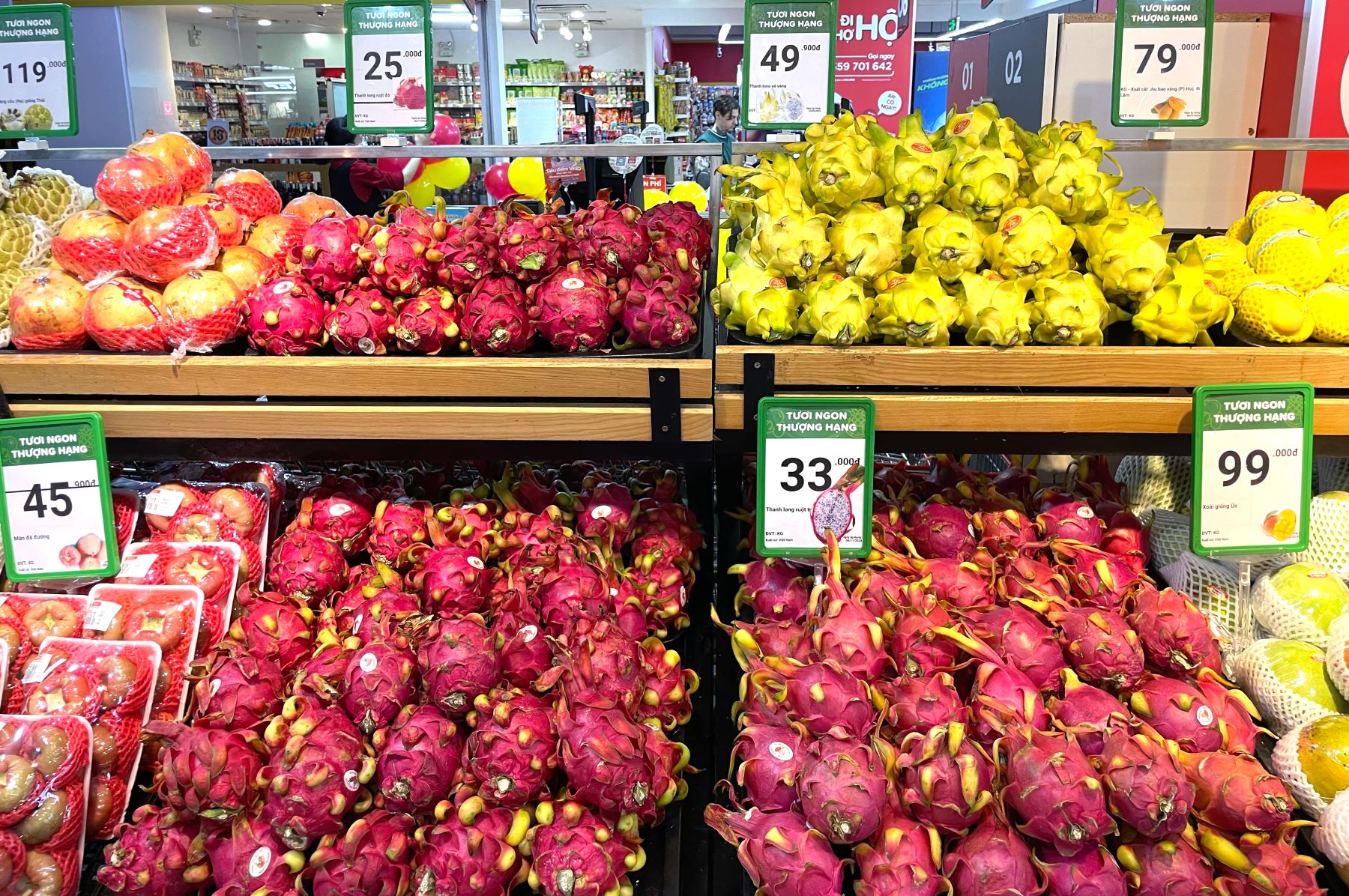A new ACIAR-funded project launched to help smallholder fruit farmers in Northwest Vietnam adopt digital tools, an important step to escape volatile markets and reach high-value customers. The move is driven by the rapid expansion of fruit production in the region which has led to oversupply, causing prices to drop by as much as 50% and pushing many farmers' returns below their production costs.
The 4-year, A$2.34 million project, led by Applied Horticulture Research (AHR) in partnership with Fruit and Vegetable Research Institute (FAVRI), focuses on dragon fruits, mangoes and longans and aims to equip growers with the digital tools they need to prove their compliance with the Vietnamese Good Agricultural Practices (VietGAP).
The project team will also help farmers improve the quality and consistency of the fruit they supply to these markets, opening access to premium domestic and export markets that demand food safety, product quality and reliable traceability. Notably, Vietnam is the 3rd largest exporter of vegetables and fruits, including mango, dragon fruit and longans, for Australia.
This new effort builds on solid evidence from decade-long ACIAR-funded projects on safe vegetables value chain and digital traceability, which helped Northwest vegetables growers increase their net income 15-fold and secure contracts with modern retailers in Hanoi, the capital of Vietnam.

'Our previous research shows that customers value quality and safety in fresh produce. Trusted information about product integrity, including certification, brand names, and production region is important in building trust,' said Professor Gordon Rogers from AHR, the project leader.
'A simple QR code linking to this product information can open new, highly profitable retail markets for our farmers.'
The project will identify the specific quality requirements of modern retail markets in Hanoi and then work directly with farmers to improve traceability, post-harvest handling, and cool-chain practices. Farmers will test and apply affordable, easy-to-use digital tools to replace paper-based records, helping to cut costs, and reduce post-harvest losses.
'Once farmers can successfully supply these high-value domestic markets, we will support them in exploring export opportunities,' said Professor Rogers.
Dr Jack Hetherington, ACIAR Research Program Manager, Agribusiness, said 'This project builds on two decades of ACIAR investment to develop resilient agri-food chains in Vietnam's Northwest, where smallholders are empowered to access high-value markets. We are confident this partnership will help raise the business profile of the Northwest fruit sector and sustainably impact the livelihoods of the thousands of smallholder farmers, who produce 20,000 hectares of mangoes in the region'.
Dr Nguyen Quoc Hung from FAVRI, who coordinates field research, added: 'Digitalisation is central to Vietnam agriculture's future aspiration. But it requires strong digital readiness. This research collaboration will build the capacity Vietnam needs to catch the digital wave in agriculture.'
Learn more about this project.






